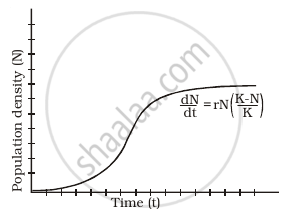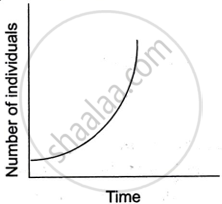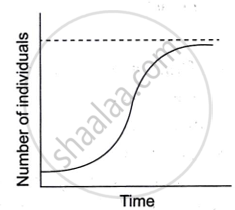Advertisements
Advertisements
Question
India’s population as per 2011 census is:
Options
1028 million
3287 million
3182 million
1210 million
Solution
1210 million
APPEARS IN
RELATED QUESTIONS
With the help of suitable diagram describe the logistic population growth curve.
Examine the following statement and correct the incorrect one.
There is an adverse impact on manpower in the regions of out-migration.
Examine the following statement and correct the incorrect one.
Developing countries have an HDI of 1.
Give Geographical Reason.
The real progress of a country is understood with the help of the Human Development Index.
Identify the correct correlation :
A: Assertion; R: Reasoning
A: Population of a region does not change.
R: Birth rate, death rate, and migration affect the population of a region.
Assertion: Population of a region does not change.
Reason: Birth rate, death rate and migration affect the population of a region.
Which one of the following is not a push factor?
What are the three components of population change?
Birth rate and death rate.
Push factors and pull factors of migration.
How long did the world take to increase its population from 5 billion to 6 billion?
What is the impact of migration?
What is the impact of migration?
What is population growth? What does population change indicate for an area?
How did science and technology help in population growth?
What is the trend in growth of population over the years in the world?
The growth of population rate per decade is ______.
Which is the most populated country?
Which of the following attributes has not been adversely affected by Age and Skill selective migration?

From the given graph, what condition can you infer about the developed countries?
When the birth rate is more than the death rate between two points of time, it is known as ______
The number of mice in a laboratory was 100 on a particular day. After one year their number increased to 120. Calculate the growth rate in the population.
In an exponential bacterial culture, the number of cells/ml is plotted o half log group. The growth is ______.
Crude Death Rate (CDR):-
Which of the following pairs is not correctly matched?
Which of the following formula correctly depicts natural growth of population?
Which of the following forms the component of a nation?
If a population of 50 Paramoecium present in a pool increases to 150 after an hour, what would be the growth rate of population?
In 2005, for each of the 14 million people present in a country, 0.028 were born and 0.008 died during the year. Using exponential equation, the number of people present in 2015 is predicted as ______.
What would be the growth rate pattern, when the resources are unlimited?
Comment on the growth curve given below.

A population of Paramoecium caudatum was grown in a culture medium. After 5 days the culture medium became overcrowed with Paramoeium and had depleted nutrients. What will happen to the population and what type of growth curve will the population attain? Draw the growth curve.
Which of the following may be interpreted as a spontaneous effort to achieve a better balance between population and resources?
Consider the following and choose the correct answer with the help of given codes-
| STAGES OF POPULATION | GROWTH FEATURES |
| I Period between 1901 to 1921 | 1. Period of steady growth |
| II Period between 1921 to 1951 | 2. Phase of stagnant growth of Population |
| III Period between 1951 to 1981 | 3. High but decreasing growth rate |
| IV After 1981 till present | 4. Period of population explosion |
Assertion (A): Population of a region does not change.
Reasoning (R): Birth rate, death rate and migration affect the population of a region.
Assertion (A): The population of a region does not change.
Reasoning (R): Birth rate, death rate and migration affect the population of a region.
A: Population of a region does not change.
R: Birth rate, death rate and migration affect the population of a region.
A: The population of a region does not change.
R: Birth rate, death rate and migration affect the population of a region.
A: Assertion; R: Reasoning
A: The population of a region does not change.
R: Birth rate, death rate and migration affect the population of a region.
Assertion (A): Population of a region does not change.
Reasoning (R): Birth rate, death rate and migration affect the population of a region.
Assertion (A): Population of a region does not change.
Reasoning (R): Birth rate, death rate and migration affect the population of a region.
Assertion: Population of a region does not change.
Reason: Birth rate, death rate and migration affect the population of a region.
Study the two figures shown below that represent two growth models.
 |
 |
| Figure A | Figure B |
- Which one of the two figures represents an unlimited supply of nutrients? Give a reason.
- Which figure depicts a challenge to population growth?
- Explain the term reproductive fitness.
- Give the mathematical expressions for Figure A and Figure B.
Assertion (A): Population of a region does not change.
Reasoning (R): Birth rate, death rate and migration affect the population of a region.
Define the following term:
Growth rate of population
Assertion (A): Population of a region does not change.
Reasoning (R): Birth rate, death rate and migration affect the population of a region.
